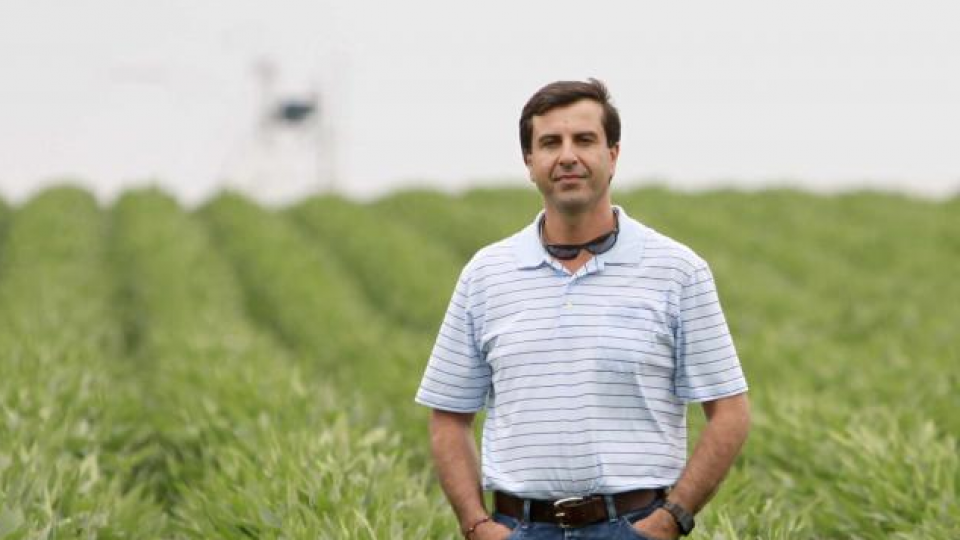
The U.S. Department of Agriculture's National Institute of Food and Agriculture has honored UNL's Nebraska Agriculture Water Management Network with a Partnership Award for its groundbreaking water-management work and contributions in advancing agricultural science.
Suat Irmak, H. W. Eberhard Distinguished Professor and a faculty fellow at the Robert B. Daugherty Water For Food Institute; and Ronnie Green, Harlan Vice Chancellor of IANR and NU Vice President, accepted the Innovative Programs and Projects Partnership Award at an Oct. 23 ceremony in Washington, D.C.
Irmak leads the UNL Extension-based network, which was launched in 2005 and is made up of farmers, natural resources districts, crop consultants, irrigation districts and USDA conservation officials. The group creates and implements effective water-conservation strategies and tools on roughly 1.7 million irrigated acres of farmland in Nebraska.
"Through research this team has displayed outstanding innovation, teamwork, partnerships, collaboration and leadership to reduce water and energy use for crop irrigation," NIFA said in a statement.
In its first decade, the network has transferred high-quality research and data on soil water status and crop-water use measurements to farmers and their advisers; adopted new irrigation water-management technologies to help farmers increase water-use efficiency, reduced energy consumption and protected agro-ecosystem services; developed new water, soil and crop management tools; and enhanced communication between growers, crop consultants, academics and state and federal agencies.
"Information and strategies taught in the network are changing how producers irrigate," Green wrote in a nomination letter to NIFA.
Green also noted the network's rapid growth and success: In 2005, 15 farmers enrolled to make use of specialized technology and equipment and to learn new strategies to conserve water and energy, such as how and when to irrigate so corn and soybean plants got the most value from moisture applied. By 2013, the network had grown to more than 1,100 Nebraska farmers managing 1.7 million acres.
The benefits in Nebraska have been clear: Participants have reduced irrigation withdrawal by at 2.2 inches per acre, per year since 2005 -- a total of more than 1 million acre-feet of water and fuel savings of more than $50 million to date. Network core members also have reached more than 10,000 people directly through Extension, outreach, demonstration programs, field days and presentations in the last decade, he said. Now it has plans to expand to other Midwest states.
In addition to Irmak, key network participants include UNL Extension educators Jennifer M. Rees, Brandy VanDeWalle and Gary Zoubek, who helped establish the network in heavily irrigated Nebraska counties. Rod DeBuhr and Dan Lininger of the Upper Big Blue Natural Resource District and Daryl Andersen of the Little Blue NRD were also major contributors to the program's success.
"The success is owed to team participants who have earned the respect of hundreds of people implementing water-saving practices to make it work," Green said. "Consequently, Nebraska has clearly demonstrated it is serious about reducing water use while maintaining a quality product and yields."
Other NIFA honorees on Oct. 23 included projects at Washington State University, Texas A&M University, the University of Florida and the University of California, Davis.
"The United States … faces a demanding set of challenges as we work to feed the world," NIFA director Sonny Ramaswamy said. "These honorees are instrumental in helping NIFA find and apply solutions that ensure all people have access to a safe and nutritious food supply."
— Steve Smith, University Communications